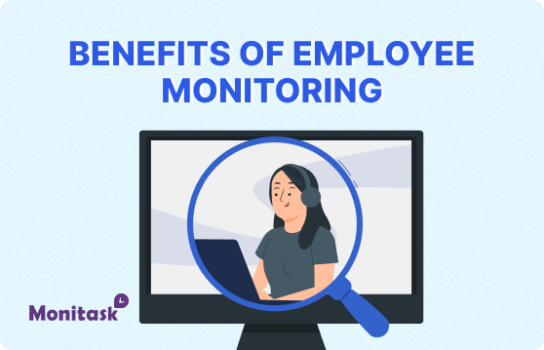Duties Test
Understanding the Duties Test in HR
In the realm of human resources and employment law, the duties test plays a crucial role in determining whether an employee qualifies for exempt status under the Fair Labor Standards Act (FLSA). This test is an essential component of the broader exemption analysis, which also includes the salary basis test and the salary level test. The duties test focuses on the specific job responsibilities and tasks performed by an employee to assess whether they meet the criteria for exemption from overtime pay requirements.
The duties test is not a one-size-fits-all approach; rather, it varies depending on the specific exemption category being considered. The most common exemption categories include executive, administrative, professional, computer-related, and outside sales positions. Each of these categories has its own set of criteria that must be met for an employee to be classified as exempt.
Executive Exemption Duties Test
For an employee to qualify for the executive exemption, they must pass the following duties test criteria:
- The employee's primary duty must be managing the enterprise or a customarily recognized department or subdivision of the enterprise.
- The employee must customarily and regularly direct the work of at least two or more other full-time employees or their equivalent.
- The employee must have the authority to hire or fire other employees, or their suggestions and recommendations regarding hiring, firing, advancement, promotion, or any other change of status of other employees must be given particular weight.
It's important to note that job titles alone do not determine exempt status. The actual job duties and responsibilities of the employee must align with the criteria outlined in the duties test.
Administrative Exemption Duties Test
The administrative exemption applies to employees whose primary duty is the performance of office or non-manual work directly related to the management or general business operations of the employer or the employer's customers. To qualify for this exemption, an employee must meet the following criteria:
- The employee's primary duty must include the exercise of discretion and independent judgment with respect to matters of significance.
- The work performed must be directly related to assisting with the running or servicing of the business, as distinguished from working on a manufacturing production line or selling a product in a retail or service establishment.
Examples of job roles that may fall under the administrative exemption include human resources managers, purchasing agents, and insurance claims adjusters. However, it's crucial to evaluate each position individually based on the actual duties performed.
Professional Exemption Duties Test
The professional exemption applies to employees who perform work requiring advanced knowledge in a field of science or learning. This exemption is further divided into learned professionals and creative professionals. The duties test for learned professionals includes:
- The employee's primary duty must be the performance of work requiring advanced knowledge in a field of science or learning.
- The advanced knowledge must be customarily acquired by a prolonged course of specialized intellectual instruction.
- The work must involve the consistent exercise of discretion and judgment.
For creative professionals, the duties test requires that the employee's primary duty involve invention, imagination, originality, or talent in a recognized field of artistic or creative endeavor.
Examples of professions that may qualify for the professional exemption include doctors, lawyers, teachers, and registered nurses. However, it's important to note that some professions, such as registered nurses, may be subject to specific state laws that affect their exempt status.
Computer-Related Exemption Duties Test
The computer employee exemption applies to highly skilled workers in the computer field. To qualify for this exemption, an employee must meet the following duties test criteria:
- The employee's primary duty must consist of:
- The application of systems analysis techniques and procedures, including consulting with users, to determine hardware, software, or system functional specifications;
- The design, development, documentation, analysis, creation, testing, or modification of computer systems or programs, including prototypes, based on and related to user or system design specifications;
- The design, documentation, testing, creation, or modification of computer programs related to machine operating systems; or
- A combination of the aforementioned duties, the performance of which requires the same level of skills.
It's worth noting that this exemption does not apply to employees engaged in the manufacture or repair of computer hardware and related equipment. Help desk personnel and other IT support staff who primarily provide troubleshooting assistance to end-users may also not qualify for this exemption.
Outside Sales Exemption Duties Test
The outside sales exemption applies to employees whose primary duty is making sales or obtaining orders or contracts for services or for the use of facilities. To qualify for this exemption, an employee must meet the following criteria:
- The employee's primary duty must be making sales or obtaining orders or contracts for services or for the use of facilities for which a consideration will be paid by the client or customer.
- The employee must be customarily and regularly engaged away from the employer's place or places of business.
It's important to note that "outside sales" does not include sales made by mail, telephone, or the internet unless such contact is used merely as an adjunct to personal calls. Any fixed site, whether home or office, used by a salesperson as a headquarters or for telephonic solicitation of sales is considered one of the employer's places of business.
Importance of Accurate Classification
Properly classifying employees as exempt or non-exempt is crucial for several reasons:
- Legal Compliance: Misclassification can lead to violations of labor laws and result in significant penalties and fines for employers.
- Financial Implications: Non-exempt employees are entitled to overtime pay, while exempt employees are not. Misclassification can lead to unexpected labor costs or underpayment of wages.
- Employee Morale: Incorrect classification can lead to dissatisfaction among employees who feel they are not being fairly compensated for their work.
- Reputation: Companies that consistently misclassify employees may face negative publicity and damage to their reputation as an employer.
Common Challenges in Applying the Duties Test
While the duties test provides a framework for determining exempt status, its application can be challenging in practice. Some common issues that employers face include:
1. Job Descriptions vs. Actual Duties
One of the most frequent challenges is the discrepancy between written job descriptions and the actual duties performed by employees. Job descriptions may be outdated or may not accurately reflect the day-to-day responsibilities of an employee. It's crucial for employers to regularly review and update job descriptions to ensure they align with the actual work being performed.
2. Multifaceted Roles
In many modern workplaces, employees often wear multiple hats and perform a variety of tasks that may span different exemption categories. Determining the "primary duty" of such employees can be challenging and requires a careful analysis of how they spend their time and which responsibilities are most critical to their role.
3. Evolving Job Responsibilities
As businesses grow and adapt, job responsibilities may change over time. An employee who was correctly classified as non-exempt when hired may take on additional responsibilities that could potentially qualify them for exempt status. Employers need to be vigilant in monitoring these changes and reassessing classifications as needed.
4. Industry-Specific Nuances
Certain industries may have unique characteristics that make applying the duties test more complex. For example, in the retail industry, assistant managers may perform a mix of managerial and non-managerial tasks, making it difficult to determine if they meet the executive exemption criteria.
Best Practices for Applying the Duties Test
To ensure accurate classification and compliance with labor laws, employers should consider the following best practices:
1. Conduct Regular Audits
Periodically review job descriptions and actual job duties to ensure they align and accurately reflect the work being performed. This can help identify any potential misclassifications and allow for timely corrections.
2. Document Job Duties
Maintain detailed records of job responsibilities, including the percentage of time spent on various tasks. This documentation can be invaluable in defending classification decisions if challenged.
3. Train Managers and Supervisors
Ensure that managers and supervisors understand the criteria for exempt status and can accurately assess the duties of their team members. This can help identify potential classification issues early on.
4. Seek Legal Counsel
When in doubt about a classification decision, consult with legal experts specializing in employment law. They can provide guidance on complex cases and help ensure compliance with both federal and state regulations.
5. Stay Informed About Regulatory Changes
Labor laws and regulations can change over time. Stay up-to-date with any modifications to the FLSA or state laws that may affect exemption criteria.
The Future of the Duties Test
As the nature of work continues to evolve, particularly with the rise of remote work and gig economy jobs, the application of the duties test may face new challenges. Some potential developments to watch for include:
1. Adaptation to Remote Work
With more employees working remotely, assessing certain aspects of the duties test, such as the management of other employees or the exercise of discretion and independent judgment, may require new approaches.
2. Technological Advancements
As artificial intelligence and automation become more prevalent in the workplace, the nature of many jobs may change. This could lead to a reevaluation of what constitutes exempt work, particularly in fields like IT and data analysis.
3. Potential Regulatory Updates
There may be future updates to the FLSA or state laws to address emerging work arrangements and job categories that don't fit neatly into the current exemption framework.
Conclusion
The duties test is a critical component in determining employee exemption status under the FLSA. While it provides a structured framework for classification, its application requires careful consideration of an employee's actual job duties and responsibilities. Employers must stay vigilant in accurately classifying their workforce to ensure compliance with labor laws and maintain fair compensation practices.
By understanding the nuances of the duties test, regularly reviewing job responsibilities, and staying informed about regulatory changes, organizations can navigate the complexities of employee classification with confidence. Ultimately, proper application of the duties test not only ensures legal compliance but also contributes to a fair and transparent work environment that values the contributions of all employees.


